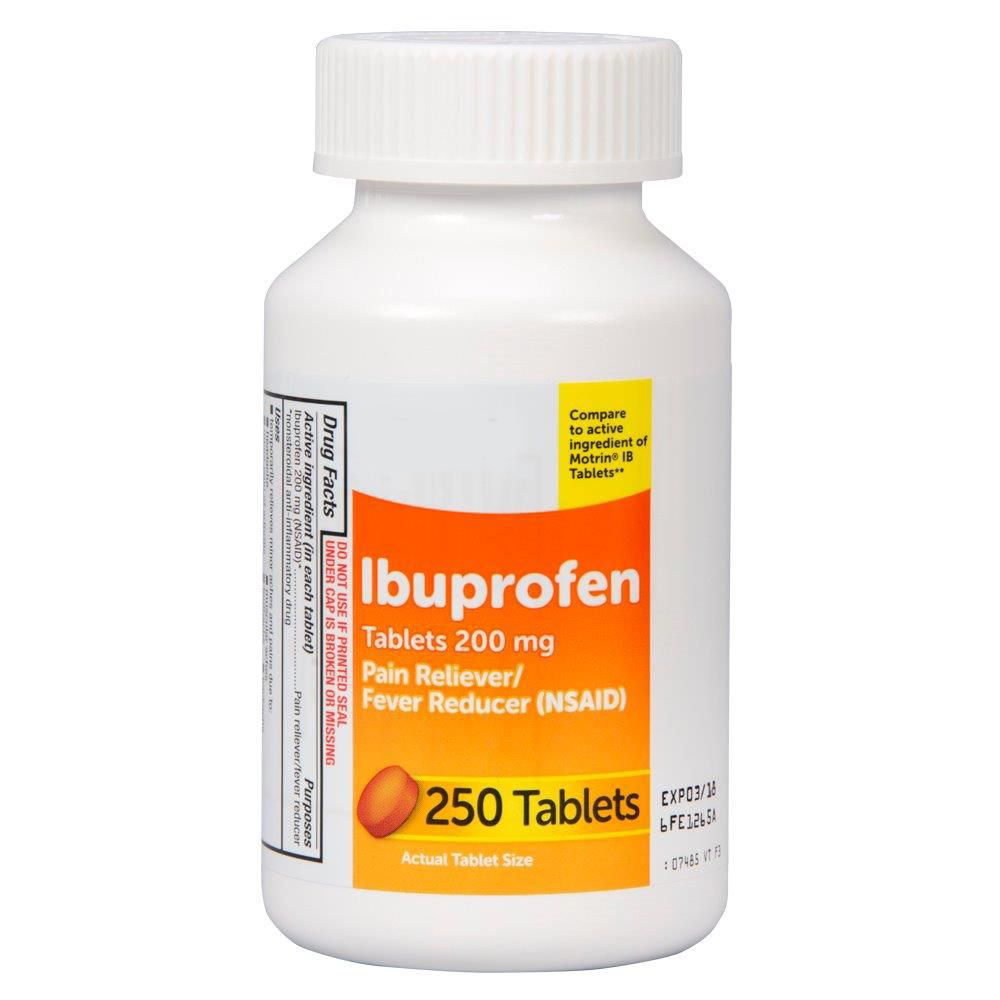Ibuprofen And COVID-19: Study Published In Journal of Clinical Medicine Claims Ibuprofen Does Not Increase Risk Of Mortality In COVID-19 Patients
Source: Ibuprofen And COVID-19 Aug 13, 2020 5 years, 6 months, 2 weeks, 18 hours, 6 minutes ago
Ibuprofen And COVID-19: A recent UK-based study conducted during the peak of hospital admissions in Britain from COVID-19 has found that the regular use of painkillers including ibuprofen, naproxen and diclofenac did not increase the risk of mortality from the SARS-CoV-2 infection..

The research findings published in the Journal of Clinical Medicine.
https://www.mdpi.com/2077-0383/9/8/2586
The research is the only study to date, to report on routine non-steroidal inflammatory drugs (NSAIDs) and their impact on patients hospitalized with COVID-19 in eight UK hospitals.
In te initial stages of the COVID-19 crisis, there has been much speculation on the use of NSAIDs, which are commonly used drugs for pain and inflammation including ibuprofen, naproxen and diclofenac, and their potential role in negative outcomes for patients.
Numerous European authorities, including those in France and Belgium, issued health warnings suggesting that the use of NSAIDs in COVID-19 infection might adversely affect patients' clinical course and recovery.
At the moment UK guidance through the Commission on Human Medicines states that there is insufficient evidence to establish a link between use of ibuprofen and susceptibility to contracting COVID-19 or the worsening of its symptoms.
The researchers in this new study were drawn from the University of Aberdeen, Cardiff University, King's College London and UK health trusts and hospitals.
The study team say considerable uncertainty regarding the use of common NSAIDs and their effect on COVID-19 has remained.
Dr Phyo Myint, senior author of the study who is a Professor from the University of Aberdeen told Thailand Medical News, "There has been much speculation about the potential role of non- steroidal inflammatory drugs (NSAIDs), which increase the expression of angiotensin converting enzyme 2 (ACE2), a molecule which sits on cell surfaces within the body and acts as the doorway for COVID-19 to enter. It has therefore been postulated that NSAID use could result in a higher viral infective load in the respiratory tract but much of the existing research in this area primarily references respiratory viruses other than COVID-19, such as severe acute respiratory virus (SARS) and Middle Eastern respiratory syndrome (MERS). As a result, the findings of these studies may not be applicable in COVID-19 infection and new research is needed. Our sresearch looked specifically at hospitalized patients with COVID-19 infection in UK hospitals during the peak of the initial wave of the epidemic."
The study team assessed the outcomes for more than 1,200 patients admitted to eight hospitals around the UK and found no clear evidence that routine NSAID use was associated with higher COVID-19 mortality.
Among those, 54 (4.4%) were routinely prescribed NSAIDs prior to admission and the team looked at the number, type and dose of anti-inflammatory that each patient was taking prior to admission.
However topical NSAIDs such as ibuprofen gels were not included due to their low level of systemic absorption and consequential limited systemic effects.&
lt;br />
It was found that the death rate for those who took NSAIDS were broadly similar to patients who did not, after controlling for other important risk factors such as age, and pre-existing health conditions such as diabetes and hypertension, smoking status, and kidney function.
The researchers said, "The study findings show no significant negative effect of routine NSAID use on mortality in patients with COVID-19 infection. Indeed, a modest beneficial effect of routine NSAID use on mortality may well exist but our sample size was not sufficient to draw conclusions regarding this and further evidence is required to explore this possible correlation and subsequently guide public health policy.”
The research has provided new but critical information into the impact of NSAID use and outcomes of COVID-19 disease, during a pandemic where there has been much uncertainty.
Drugs like NSAIDs are one of the most commonly prescribed and used pain medications worldwide, for both acute pain and chronic conditions such as rheumatological diseases and osteoarthritis.
The researchers add that based on their results, patients and clinicians should not associate the routine use of NSAIDs with an increased risk of mortality in COVID-19 disease, and they recommend that patients continue to comply with their baseline drug regime.
The research team however stressed that their results specifically apply to the routine use of NSAIDs in patients who then develop COVID-19 infection. These study results do not signify the safety of acute NSAID use in the context of COVID-19 disease.
For more on
Ibuprofen And COVID-19, keep on logging to Thailand Medical News.
